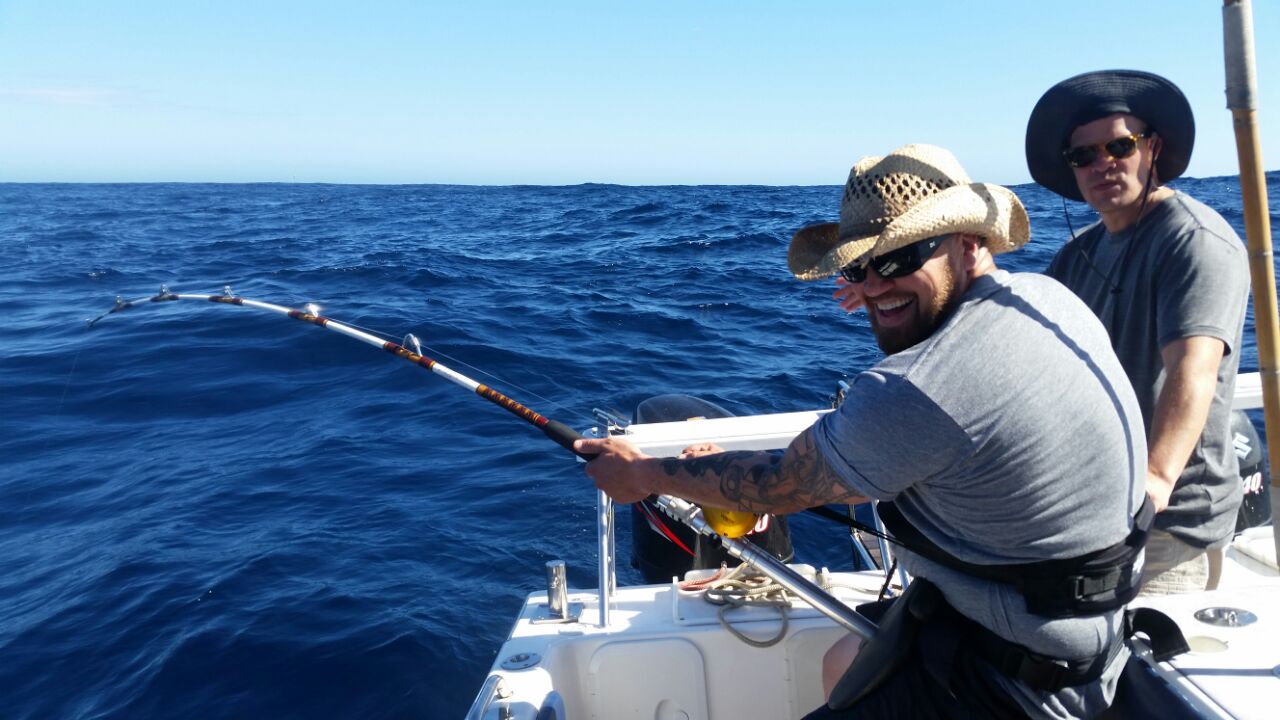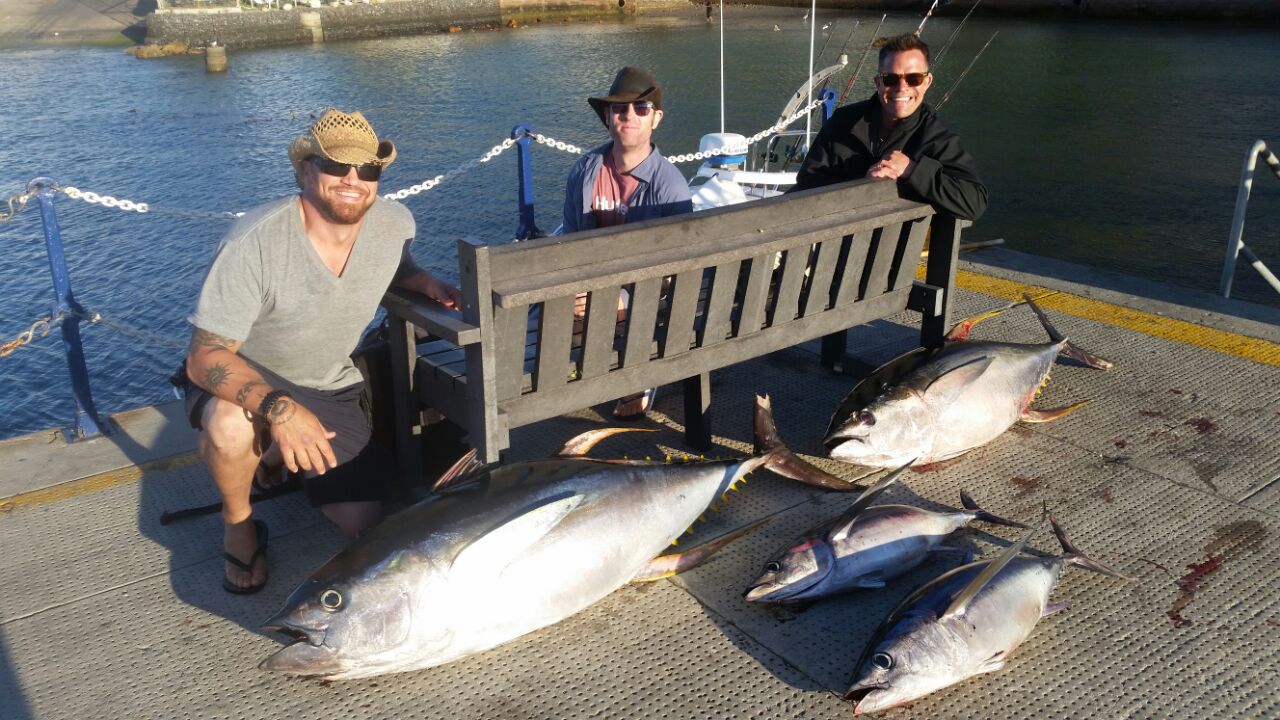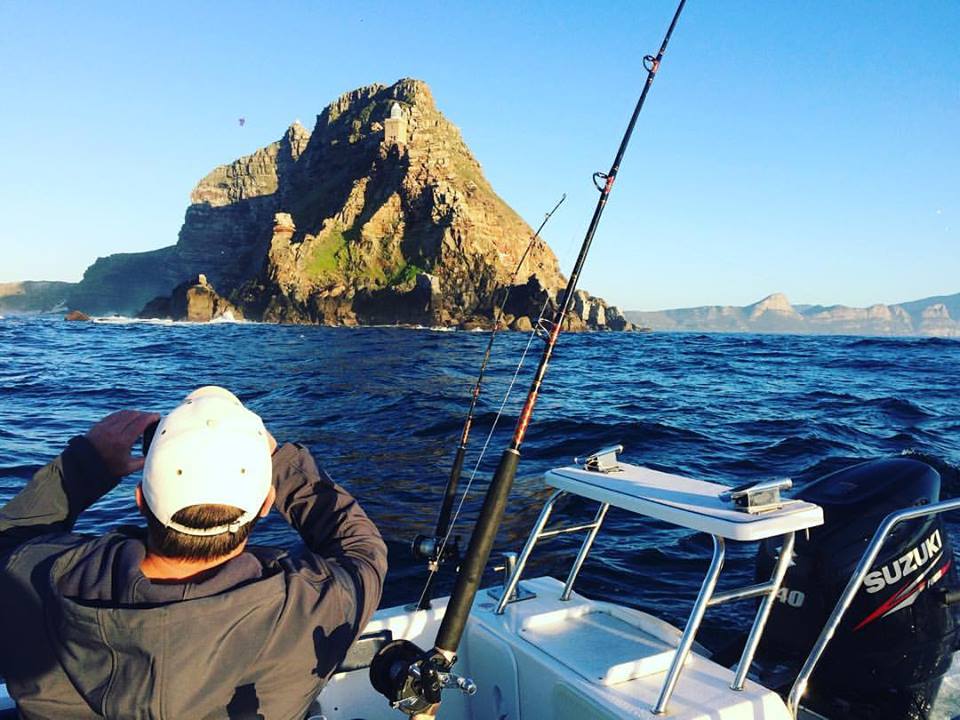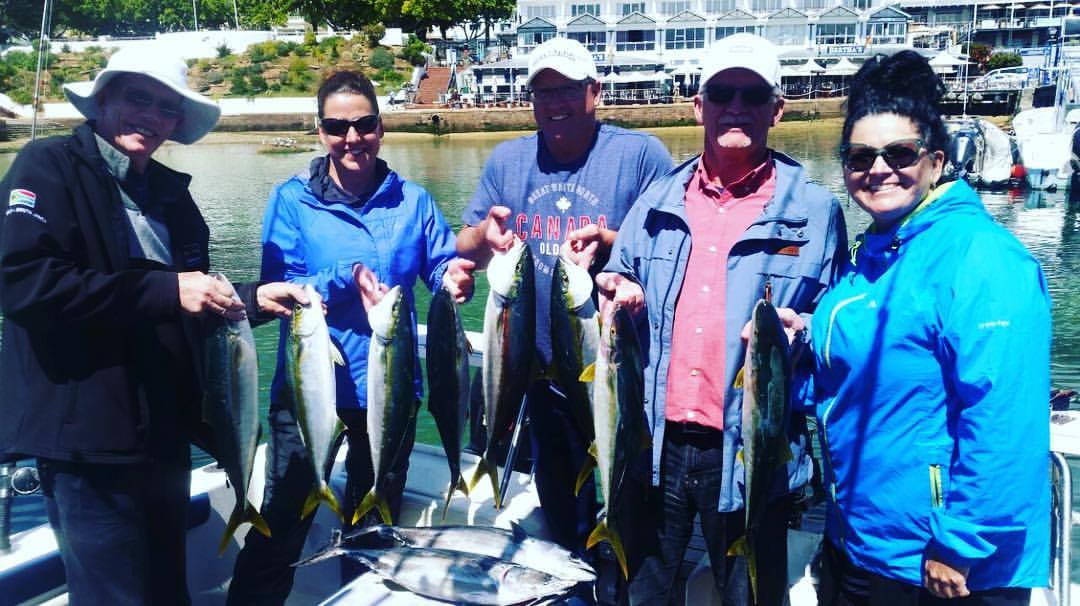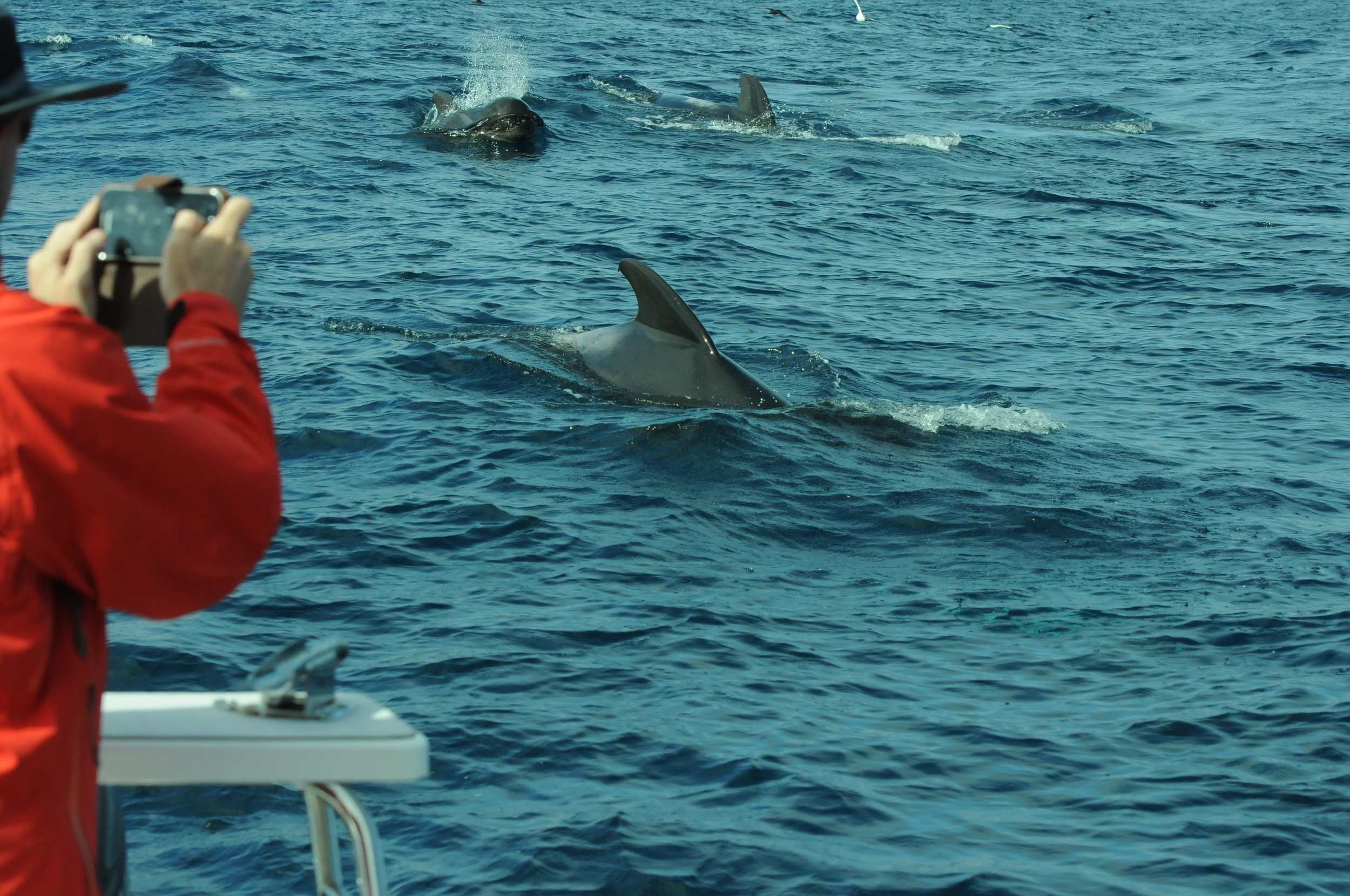Yellowfin Tuna Madness!
On Monday we had two Swedish guests join us on a Offshore Tuna Charter - Skipper, Alan, decided to head into the West of Cape Point after doing research on where the warmer water was situated. It was a decision which our guests would never forget. As we arrived in West, we were boat alone, but Alan said that the water was the right temperature (19-20 degrees), the color was right and the bird life seemed promising. Man was he right! Shortly after putting our back-lines in the water, which consisted of larger size Rapala's (deep-divers) and various size squids, we had our first hook-up of a 45 kg Yellowfin Tuna! Our guest Fredrik was first to take charge of the rod and impressively landed his fish in under 20 minutes. With utter stoke on his face, he handed the harness gear to his friend Katrina and she waiting anxiously for her turn to take on the mighty Yellow-fin Tuna!
About an hour later, the ratchet went off and it was Katrina's turn! She grabbed the rod and we clipped her in. She surprised us all, by not giving up she fought the fish one on one and managed to land her very first, personal best Yellow-Fin Tuna of about 40-50 kg's. She was beside herself and we were super proud of her achievement. Our guests went on to catching ac couple of Long-fin Tuna shortly after and then it was as if someone turned the lights off and the fish stopped biting. We returned home to Simonstown with big smiles and some great memories. Well Done Fredrik and Katrina on an amazing catch!
Yesterday's trip was an action packed day to remember. Our return guests from America, joined us, but this time for a Tuna Charter. They have been with us before, where we caught heaps of Long-Fin Tuna, but now they had returned to catch the elusive Yellow-fin Tuna! The three boys ended up taking turn's fighting larger sized Yellow-Fin Tuna, one of which exceeded 100 kg's. All our guests landed their largest, personal best record Yellow-Fin Tuna and to make the day even better, we landed a couple of large (15-20 kg) Long-Fin Tuna.
Well done to all our guests from the last two charters - We hope to see you again soon! :D
